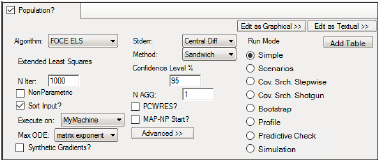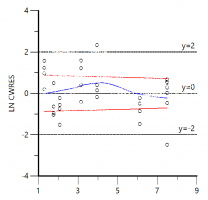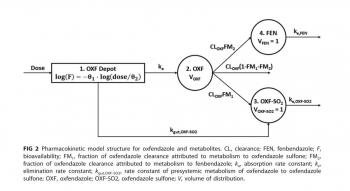Hello,
I am running a 2-compartment linear model, when I don't click closed form to use differential equations, the model is not converging with error message:
Initial parameter values result in -LL = NaN
Attached Files
- WalterNic, ??????????????? ??????, DanielGon and 12 others like this


 Posted by
Posted by 





